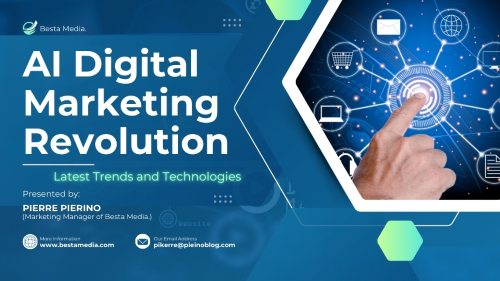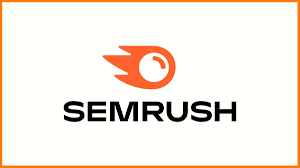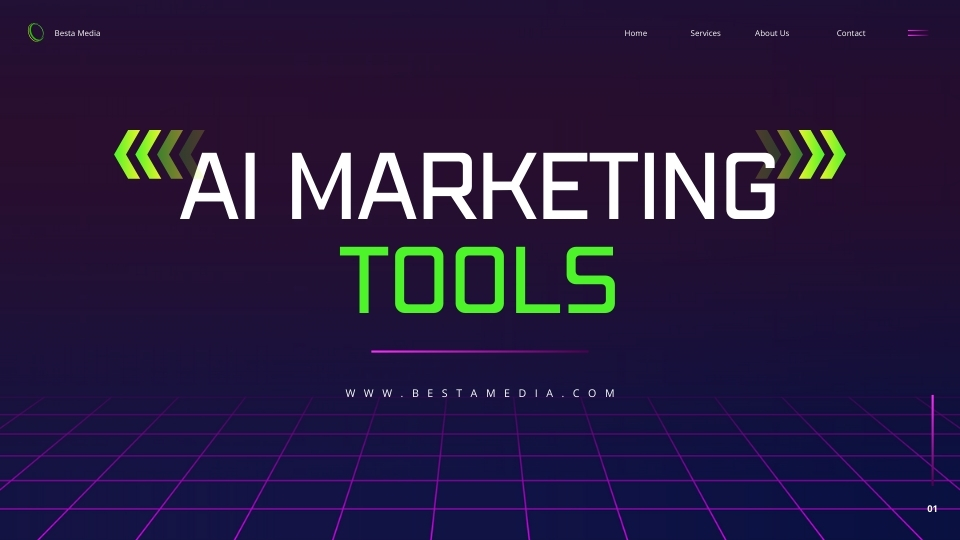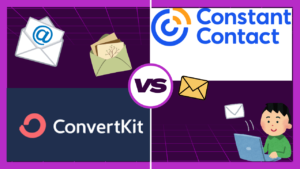AI Marketing Tools: Revolutionizing Digital Strategies in 2024. The Comprehensive Guide.
Discover how AI marketing tools are reshaping digital strategies in 2024. Learn about top tools, benefits, and implementation strategies in this comprehensive guide.
In the rapidly evolving landscape of digital marketing, artificial intelligence (AI) has emerged as a game-changing force, revolutionizing how businesses approach their marketing strategies. This comprehensive guide delves into the world of AI marketing tools, exploring their transformative impact on the industry and providing actionable insights for marketers looking to leverage these powerful technologies.

Introduction to AI in Marketing
Artificial Intelligence has become an indispensable component of modern marketing strategies. By harnessing the power of machine learning, natural language processing, and data analytics, AI marketing tools are enabling businesses to achieve unprecedented levels of efficiency, personalization, and effectiveness in their marketing efforts.
According to a recent study by Gartner, 80% of marketing executives report accelerating their AI and automation adoption in 2023 [1]. This trend is set to continue, with the global AI in marketing market projected to reach $107.5 billion by 2028, growing at a CAGR of 35.9% from 2021 to 2028 [2].
The Evolution of AI Marketing Tools
The journey of AI in marketing has been marked by rapid advancements and increasing sophistication:
- Early 2000s: Rule-based systems and basic automation
- 2010-2015: Machine learning algorithms for predictive analytics
- 2015-2020: Natural Language Processing (NLP) and computer vision applications
- 2020-Present: Advanced AI models like GPT-3 and DALL-E, enabling human-like content creation and image generation
This evolution has led to a new era of marketing where AI tools can not only analyze data but also create content, personalize experiences, and make complex decisions in real-time.
Key Benefits of AI Marketing Tools
- Enhanced Efficiency: Automation of repetitive tasks, freeing up marketers to focus on strategy and creativity
- Improved Personalization: Delivery of tailored content and experiences at scale
- Data-Driven Decision Making: Advanced analytics for deeper insights and more accurate forecasting
- Cost Reduction: AI Marketing Tools Streamline processes and optimized resource allocation
- Increased ROI: More effective campaigns and better targeting leading to higher conversion rates
- 24/7 Customer Engagement: AI-powered chatbots and virtual assistants providing round-the-clock support
- Scalability: AI Marketing Tools handle large volumes of data and interactions without proportional increase in resources
Top AI Marketing Tools for 2024
Content Creation and Optimization



1. Jasper AI:
- Overview: Jasper AI is an advanced AI-powered writing assistant designed specifically for marketers, content creators, and businesses. It helps in generating high-quality content, saving time, and increasing productivity.
- Key Features:
- Content Creation: Capable of producing blog posts, social media content, emails, and marketing copy.
- Customization: Offers templates for various content types, including ads, product descriptions, and landing pages.
- AI-Powered Suggestions: Helps improve content flow, engagement, and SEO by providing data-driven suggestions.
- Use Cases:
- Writing long-form blog posts, eBooks, and web content.
- Crafting compelling ad copy for Facebook, Google, and Instagram ads.
- Generating unique, creative ideas for branding and storytelling.
2. Copysmith:
- Overview: Copysmith is an AI-powered tool specifically designed to automate the creation of marketing content. It’s ideal for e-commerce businesses, ad agencies, and startups that need quick and efficient content generation.
- Key Features:
- Product Descriptions: Generates unique and SEO-friendly product descriptions in bulk.
- Ad Copy: Creates high-converting ad copy for social media, search engines, and display ads.
- Team Collaboration: Allows teams to collaborate and manage content projects, making it easier to generate and approve content quickly.
- Use Cases:
- Writing product descriptions for e-commerce websites.
- Creating ad campaigns across multiple platforms.
- Generating sales emails, taglines, and marketing slogans for product launches.
3. Grammarly:
- Overview: Grammarly is a popular AI writing assistant that helps users enhance their writing by providing real-time feedback on grammar, punctuation, and style. It’s widely used by professionals, students, and businesses to ensure polished and error-free communication.
- Key Features:
- Grammar and Spelling Checks: Provides advanced grammar suggestions, including punctuation corrections.
- Style and Tone Optimization: Helps adjust the tone, making it more formal, casual, or confident based on the context.
- Plagiarism Checker: Ensures that the content is original by comparing it against billions of web pages.
- Use Cases:
- Editing emails, reports, and academic papers for clarity and conciseness.
- Improving the overall tone and readability of marketing materials.
- Ensuring error-free communication in client proposals, presentations, and official documents.
These tools leverage natural language processing to generate human-like text, helping marketers create high-quality content at scale.
Personalization and Customer Experience in the use of AI Marketing Tools
1. Dynamic Yield:
- Overview: Dynamic Yield is an AI-powered personalization platform that helps businesses deliver tailored customer experiences across websites, mobile apps, emails, kiosks, and more. It enables marketers to create personalized journeys for each user based on their preferences and behaviors.
- Key Features:
- Personalized Recommendations: Delivers product and content recommendations based on user behavior and real-time data.
- Segmentation & Targeting: Segments audiences dynamically to serve different experiences to various customer groups.
- A/B Testing and Optimization: Allows businesses to experiment with different versions of content and layouts to see which performs best.
- Use Cases:
- Personalizing product recommendations on e-commerce sites.
- Creating tailored landing pages based on customer segments.
- Optimizing email campaigns with personalized content suggestions.
2. Optimizely:
- Overview: Optimizely is an AI-powered experimentation platform designed to optimize website and content performance. It enables businesses to test and iterate on their digital experiences, ensuring data-driven decision-making and improved user engagement.
- Key Features:
- A/B and Multivariate Testing: Conducts experiments on website elements, such as layout, headlines, and call-to-action buttons, to determine what performs best.
- AI-Powered Recommendations: Utilizes AI to recommend variations that could improve conversion rates and engagement.
- Personalization Engine: Personalizes user experiences by leveraging behavioral data and machine learning.
- Use Cases:
- Testing different versions of a webpage to improve conversion rates.
- Personalizing content and recommendations based on visitor behavior.
- Running experiments on mobile apps to optimize user experience.
3. Adobe Target:
- Overview: Adobe Target is a part of the Adobe Experience Cloud, offering a robust set of AI-powered tools for personalization, testing, and audience targeting. It allows marketers to deliver tailored experiences to different segments of their audience through machine learning algorithms.
- Key Features:
- AI-Powered Personalization (Adobe Sensei): Uses Adobe Sensei’s AI capabilities to automate personalization and deliver the right content to the right user at the right time.
- A/B and Multivariate Testing: Facilitates advanced experimentation to identify high-performing content and design variations.
- Omnichannel Personalization: Delivers consistent, personalized experiences across all digital touchpoints, including websites, mobile apps, and emails.
- Use Cases:
- Creating personalized marketing campaigns based on user behavior and preferences.
- Testing different product page layouts to enhance user engagement and sales.
- Providing personalized offers and recommendations on e-commerce platforms.
Each of these tools leverages AI to enhance customer experiences, optimize content, and drive business results. Would you like to explore any specific platform in more detail or learn how they could be integrated into your marketing strategies?
Personalization tools use machine learning algorithms to analyze user behavior and preferences, enabling marketers to deliver highly relevant content and experiences.
Predictive Analytics and Forecasting AI Marketing Tools
1. Salesforce Einstein:
- Overview: Salesforce Einstein is an AI-powered analytics platform embedded within Salesforce CRM, offering advanced capabilities like sales forecasting, customer insights, and automation. It helps sales, marketing, and service teams make data-driven decisions.
- Key Features:
- Predictive Analytics: Provides sales forecasting and opportunity scoring to help sales teams prioritize leads and deals likely to close.
- AI-Powered Recommendations: Suggests next best actions for sales and service teams based on customer behavior and historical data.
- Customer Insights: Offers deep insights into customer behavior, enabling personalized engagement and better service experiences.
- Use Cases:
- Sales Forecasting: Helps sales teams predict future revenue based on historical data and AI-driven projections.
- Lead Scoring: Automatically ranks leads by likelihood to convert, enabling sales teams to focus on high-value opportunities.
- Automated Customer Service: Recommends solutions and responses for customer service agents to resolve issues faster.
2. IBM Watson Analytics:
- Overview: IBM Watson Analytics is an advanced AI-driven platform that offers predictive modeling, data exploration, and visualization capabilities. It empowers businesses to extract actionable insights from large datasets, helping make informed decisions.
- Key Features:
- Predictive Modeling: Uses AI to predict outcomes and trends, allowing businesses to make proactive decisions.
- Natural Language Querying: Enables users to ask questions in natural language, making data exploration accessible without needing advanced technical skills.
- Data Visualization: Automatically generates insightful visual representations, such as charts and dashboards, based on data.
- Use Cases:
- Predictive Analytics: Helps businesses forecast trends in customer behavior, sales, or market conditions.
- Data Discovery: Assists in uncovering hidden patterns and insights in datasets without the need for data science expertise.
- Reporting and Dashboards: Creates interactive reports and dashboards to visualize business performance and trends.
3. Google Analytics 4 (GA4):
- Overview: Google Analytics 4 (GA4) is the latest version of Google’s analytics platform, designed with a focus on machine learning and cross-device tracking. It offers powerful insights through AI-driven predictions and improved user behavior analysis across websites and apps.
- Key Features:
- Predictive Metrics: Utilizes machine learning to provide predictive insights, such as the likelihood of a user making a purchase or leaving the site.
- Event-Based Tracking: Allows tracking of user actions (events) across websites and apps without needing complex coding.
- Audience Insights: Helps identify high-value audiences and their behaviors, optimizing marketing strategies.
- Use Cases:
- Customer Journey Analysis: Understand how users interact across multiple devices and platforms, providing a holistic view of the customer journey.
- Predictive Analytics: Provides insights into potential revenue and user behavior trends, helping businesses prioritize marketing efforts.
- Cross-Platform Analytics: Tracks user behavior across both web and mobile apps, ensuring cohesive reporting and optimization for omnichannel experiences.
These platforms provide businesses with powerful analytics and predictive capabilities, enhancing decision-making, optimizing customer experiences, and improving overall performance.
These tools help marketers make data-driven decisions by providing accurate forecasts and actionable insights.
Chatbots and Conversational AI Marketing Tools
- Intercom: AI-powered customer messaginAI Marketing Toolsg platform with chatbot capabilities
- MobileMonkey: Multi-channel chatbot platform for marketing and customer service
- Drift: Conversational marketing platform with AI-driven chatbots
Chatbots enhance customer engagement by providing instant, 24/7 support and personalized interactions.
Social Media Management
- Hootsuite Insights Powered by Brandwatch: AI-driven social listening and analytics tool
- Sprout Social: Social media management platform with AI-powered analytics and reporting
- Later: Visual marketing platform with AI-powered scheduling and analytics
These tools help marketers optimize their social media strategies by analyzing trends, sentiment, and engagement patterns.
Email Marketing Automation
- Mailchimp:Overview: Mailchimp is a leading email marketing platform that helps businesses create, send, and optimize email campaigns. It leverages AI to enhance content creation and improve the timing of email sends, resulting in higher engagement and better performance.Key Features:Use Cases:
- Constant Contact:Overview: Constant Contact is an easy-to-use email marketing tool that helps small businesses and nonprofits send professional email campaigns. Its AI-driven features provide users with smart suggestions to enhance email performance.Key Features:Use Cases:
- Seventh Sense:
- Overview: Seventh Sense is a specialized email marketing tool that focuses on send-time optimization using artificial intelligence. It integrates with platforms like HubSpot and Marketo to analyze recipient data and determine the best times to send emails for maximum engagement.Key Features:
- AI-Powered Send Time Optimization: Uses machine learning to predict the optimal time to send emails to each individual recipient based on their past behavior.
- Behavioral Analytics: Tracks how recipients interact with emails, gathering data to fine-tune future send times.
- Integration with Major Platforms: Seamlessly integrates with HubSpot and Marketo, making it easy to implement AI-driven send-time optimization without disrupting existing workflows.Use Cases:
- Ensuring that emails land in a recipient’s inbox at the exact moment they are most likely to engage with it.
- Boosting open rates and engagement by personalizing send times for every contact on your list.
- Improving email deliverability and campaign success rates through continuous behavioral analysis.
- Each tool applies AI in a unique way to improve the effectiveness of email marketing campaigns, making them more personalized, timely, and relevant.
AI marketing tools helps improve open rates, click-through rates, and overall campaign performance through personalization and optimization.
SEO and SEM Tools

SEMrush: Comprehensive SEO toolkit with AI-powered content optimization features

Ahrefs: SEO tool suite with advanced link analysis and keyword research capabilities
BrightEdge: AI-powered SEO platform for content optimization and performance tracking

These tools leverage AI to help marketers improve their search engine rankings and optimize their digital presence.
Implementing AI Marketing Tools: Best Practices
- Start with a Clear Strategy: Define your objectives and KPIs before implementing AI tools
- Ensure Data Quality: AI models are only as good as the data they’re trained on; invest in data cleaning and management
- Integrate Tools Carefully: Ensure seamless integration with your existing martech stack
- Prioritize User Privacy: Implement robust data protection measures and comply with regulations like GDPR
- Provide Adequate Training: Ensure your team understands how to use and interpret AI-generated insights
- Maintain Human Oversight: Use AI as a tool to augment human creativity and decision-making, not replace it
- Continuously Monitor and Optimize: Regularly assess the performance of your AI tools and refine your approach
Challenges and Considerations for AI Marketing Tools
While AI marketing tools offer significant benefits, there are challenges to consider:
- Data Privacy Concerns: Ensuring compliance with data protection regulations
- Ethical Considerations: Addressing bias in AI algorithms and maintaining transparency
- Integration Complexity: Seamlessly incorporating AI tools into existing workflows
- Skill Gap: Training marketing teams to effectively use and interpret AI-generated insights
- Over-reliance on Automation: Balancing AI efficiency with human creativity and intuition
Future Trends in AI Marketing Tools
As we look ahead, several exciting trends are shaping the future of AI in marketing:
- Hyper-Personalization: AI will enable even more granular personalization, tailoring experiences to individual preferences and behaviors
- Voice and Visual Search Optimization: As voice assistants and image recognition technology advance, marketers will need to optimize for these new search paradigms
- Augmented and Virtual Reality Integration: AI will play a crucial role in creating immersive AR and VR marketing experiences
- Emotion AI: Advanced sentiment analysis will help marketers understand and respond to customer emotions in real-time
- Predictive Customer Lifetime Value: AI models will become more accurate in predicting long-term customer value, enabling more effective resource allocation
Case Studies: AI Marketing Tools Success Stories
- Netflix: Uses AI for content recommendations, saving an estimated $1 billion per year in customer retention [3]
- Starbucks: Implements AI-driven personalization in its mobile app, leading to a 150% increase in user interaction [4]
- The North Face: Utilizes IBM Watson for a personalized shopping experience, resulting in a 60% click-through rate on product recommendations [5]
These case studies demonstrate the tangible benefits of implementing AI marketing tools across various industries.
Conclusion: Embracing the AI-Driven Marketing Revolution of AI Marketing Tools
As we’ve explored in this comprehensive guide, AI marketing tools are not just a trend but a fundamental shift in how businesses approach digital marketing. From content creation to predictive analytics, these tools are empowering marketers to work smarter, faster, and more effectively than ever before.
To stay competitive in the rapidly evolving digital landscape, businesses must embrace AI Marketing Tools and integrate them thoughtfully into their marketing strategies. By doing so, they can unlock new levels of personalization, efficiency, and effectiveness, driving better results and delivering superior customer experiences.
As we move forward, the key to success will lie in striking the right balance between AI-driven insights and human creativity. By leveraging the strengths of both, marketers can create truly innovative and impactful campaigns that resonate with their audiences and drive business growth.
The AI marketing revolution is here. Which AI Marketing Tools fits your Business? Are you ready to lead the change?
References:
- Gartner, “Gartner Survey Reveals Marketing Budgets Have Increased to 9.5% of Overall Company Revenue in 2022,” https://www.gartner.com/en/newsroom/press-releases/2022-06-24-gartner-survey-reveals-marketing-budgets-have-increased-to-9-percent-of-overall-company-revenue-in-2022
- MarketsandMarkets, “Artificial Intelligence in Marketing Market,” https://www.marketsandmarkets.com/Market-Reports/artificial-intelligence-in-marketing-market-55838268.html
- Netflix Technology Blog, “How Netflix’s Recommendations System Works,” https://netflixtechblog.com/how-netflix-recommendations-system-works-1e3d55397433
- Forbes, “Starbucks: Using Big Data, Analytics And Artificial Intelligence To Boost Performance,” https://www.forbes.com/sites/bernardmarr/2018/05/28/starbucks-using-big-data-analytics-and-artificial-intelligence-to-boost-performance/
- IBM, “The North Face + IBM Watson,” https://www.ibm.com/watson/stories/thenorthface
- Discover Superior Tools to Improve Your Digital Marketing: https://bestamedia.com/



